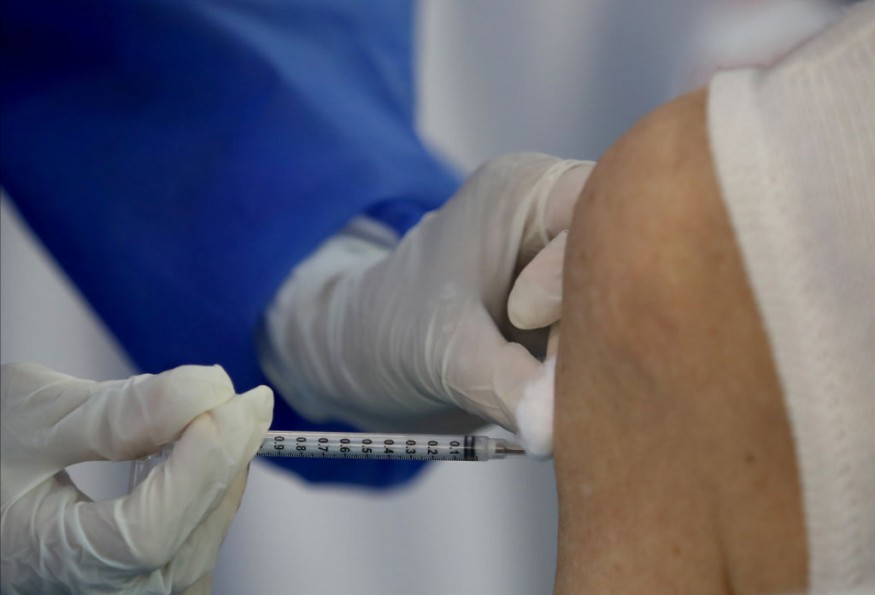Can COVID Vaccine Affect Your Menstrual Cycle? Here's What Experts Say

Some women are reporting temporary changes in their menstrual cycles after taking their dose of the COVID vaccine.
Anecdotal evidence from women worldwide had raised questions about whether the COVID vaccine affects menstrual cycles, ABC 7 Chicago reported.
"I had my 1st COVID-19 vaccine in January followed by the 2nd in February, and since then I have had hemorrhagic bleeding with clots. This month of April was the heaviest," one woman wrote in a social media post.
Another woman said: "My period has been the lightest in years for the past 2 cycles. Was beginning to wonder if I was pushed into pre-menopause."
Experts Explanation
UCSF OBGYN, Dr. Heather Huddleston, told ABC7 that these changes are very common. Huddleston, who specializes in reproductive endocrinology, said the changes in a menstrual cycle might be connected to stress or disrupted sleep, or disrupted body temperatures.
"All of those things could have led to something in the menstrual cycle getting a little thrown off for a month," she noted.
Huddleston said that she noticed receiving fewer complaints about cycle changes in recent weeks at her clinic. She also wanted to reassure women that the COVID-19 vaccine is safe.
Alice Lu-Culligan and Dr. Randi Hutter Epstein at Yale School of Medicine said there is no data linking the vaccines to changes in menstrual cycles.
"Even if there is a connection, one unusual period is no cause for alarm," they wrote in the New York Times.
Dr. Jen Gunter, an obstetrician-gynecologist and pain medicine physician, also said the COVID vaccine could not exert reproductive control via proxy, The Guardian reported.
The American College of Obstetrics and Gynecology also issued messages and statements saying that there is no evidence that the COVID vaccine could affect fertility.
The organization is also urging pregnant and lactating women to get the vaccine as data proved it is safe and effective for both mother and child.
COVID Vaccine And Shingles
A 27-year-old patient had received the first dose of the COVID vaccine. But weeks later, the patient was said to have developed shingles.
Infectious disease experts do not think that this was a side effect of the vaccine. Also known as herpes zoster, shingles is a viral infection that people who had chickenpox could get when the virus is reactivated.
Aaron Glatt, MD, chief of infectious diseases at Mount Sinai South Nassau in Oceanside, NY, and a spokesperson for the Infectious Diseases Society of America, said there is no scientific evidence that there is a connection, WebMD reported.
Cases of shingles emerging are not surprising, according to the experts. However, there is still no evidence that it can be linked to the COVID vaccine.
Glatt said almost one out of three people in the U.S. would develop shingles in their lifetime.
According to the Centers for Disease Control and Prevention (CDC), two doses of the shingles vaccine would prevent it in 91 to 97 percent of adults, but it depends on their age when they get vaccinated. The shingles vaccine is reportedly recommended for people ages 50 and up.
Researchers noted that shingles appear to be triggered partially by a decrease in immunity. It can also be linked to stress and depressive symptoms; both were common during the pandemic.
READ MORE : 'Vaccine-Gate' Scandal: Over 400 Peruvian VIPs Secretly Got COVID-19 Shots Before Official Rollout
WATCH: Can COVID-19 Vaccine Impact Your Menstrual Cycle? Doctors Address Side-Effects Concerns - From WTVR CBS 6
Subscribe to Latin Post!
Sign up for our free newsletter for the Latest coverage!
© 2026 Latin Post. All rights reserved. Do not reproduce without permission.















